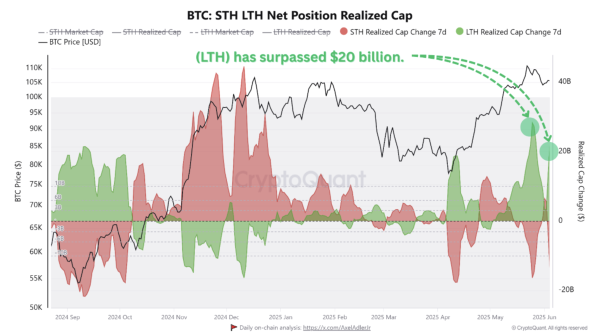Grayscale prepares for Bitcoin and Ethereum ETF spinoffs in July 
![]() Cryptocurrency Jul 19, 2024 Share
Cryptocurrency Jul 19, 2024 Share
Grayscale is preparing for a Bitcoin (BTC) and Ethereum (ETH) exchange-traded funds’ (ETFs) spinoff on July 23 and 31.
In a recent thread on X, James Seyffart, Senior ETF Analyst at Bloomberg, provided an in-depth explanation of Grayscale’s upcoming Bitcoin and Ethereum ETF spinoffs.
Doing a thread on the situation for @Grayscale's spinoff for $ETHE & $ETH because I've gotten about a million questions on it. The mechanics will be essentially the same for $GBTC & $BTC spinoff. If you own 1,000 shares of $ETHE, you should receive 1,000 shares of mini $ETH. 1/ pic.twitter.com/Er66mj5L46
— James Seyffart (@JSeyff) July 19, 2024
These spinoffs, set to launch later this month, aim to offer lower-fee options for investors. Seyffart clarified the mechanics and timelines, responding to numerous inquiries about the spinoffs. For the Grayscale Ethereum Trust (ETHE), the spinoff will occur on July 23, while the Grayscale Bitcoin Trust (GBTC) will spin off on July 31.
Picks for you
Tornado Cash’s $1.9 billion resurgence indicates growing demand for privacy 5 hours ago How rich is South Dakota's senator: Mike Rounds' net worth revealed 7 hours ago Analyst sets Bitcoin roadmap to $200,000 8 hours ago Bitcoin analyst eyes $180,000 by 2025 based on BTC price historical patterns 8 hours ago
Additionally, the spinoffs will function similarly: every share of the original fund gets a corresponding share in the new mini-fund. Seyffart further explained that to qualify, shareholders must own the relevant shares by the record date, which was July 18 for ETHE and will be July 30 for GBTC.
How will Grayscale’s spinoff affect investors?
Grayscale’s blog post on spin-offs outlines how the process will affect shareholders. A spin-off is essentially a portion of a larger product moved out to create a smaller, independent product. This new, lower-cost product aims to cater to diverse investment needs while maintaining the total value of an investor’s assets. Shareholders don’t need to take any action; they will automatically receive the new shares, which might take several days to reflect in their accounts post-distribution.
Select Grayscale products may be undergoing a spin-off in the near future 😉 Not sure what that means? Read our blog and watch our informational video here for what you need to know.https://t.co/RXUkx8GWJb pic.twitter.com/oiNWn0pCfw
— Grayscale (@Grayscale) July 18, 2024
Grayscale reasons that these spin-offs allow investors greater choice. This strategy helps existing shares gain the same value spread across the original and new funds, promoting more flexibility and potentially lower fees. Specifically, the Bitcoin Mini Trust will offer fees as low as 0.15%, compared to GBTC’s current 1.5% fee.
Grayscale’s market strategy
Grayscale’s move to spin-off the mini trusts is a maneuver to cope better with competition and current market conditions. As reported by The Block in April, Grayscale’s Bitcoin Mini Trust aims to charge the lowest rate in the industry at 0.15%. In contrast, high fees of up to 1.5% are currently associated with GBTC. This aggressive adjustment positions Grayscale advantageously against competitors like BlackRock and Fidelity, whose funds have attracted considerable inflows.
Furthermore, Seyffart noted that comparable pricing actions would be visible for the ETH mini trust, which will likely trade at a fraction of the typical price due to the smaller fund structure. With these spinoffs, Grayscale expects to democratize market access, making it less costly for investors to get involved in these digital assets.
Implications for Grayscale and broader market dynamics
Grayscale’s strategic shift to mini-trusts comes amidst industry-wide trends of reducing fees for better investor appeal. As highlighted in Reuters‘ March report, the company’s legal fight with the SEC paved the way for the approval of spot bitcoin ETFs. This change has been significant, with an influx of investments observed in lower-fee ETFs like those managed by BlackRock and Fidelity.
The strategic acumen displayed by Grayscale through these spin-offs might reinvigorate their standing in the market. Strong competition and investor demand for lower fees highlight the intense dynamism within the ETF space—evidence of which can be seen in Lookonchain’s reports showing mixed ETF flows and fluctuating investor confidence.
July 19 Update:
9 ETFs decreased 38 $BTC(-$2.49M).#Blackrock added 1,616 $BTC(+$106.28M) and currently holds 325,449 $BTC($21.4B).#Grayscale decreased 845 $BTC(-$55.58M) and currently holds 272,160 $BTC($17.89B).https://t.co/cbV7RkAgyd pic.twitter.com/LD5NqoSJQU
— Lookonchain (@lookonchain) July 19, 2024
Overall, Grayscale’s anticipated Bitcoin and Ethereum mini trust ETFs symbolize not just a tactical shift but a broader evolution within the crypto ETF landscape. By offering a lower-cost alternative, Grayscale may well solidify its leadership status in the crypto-focused asset management arena. Investors will be keen to see how these developments unfold in the coming weeks.



